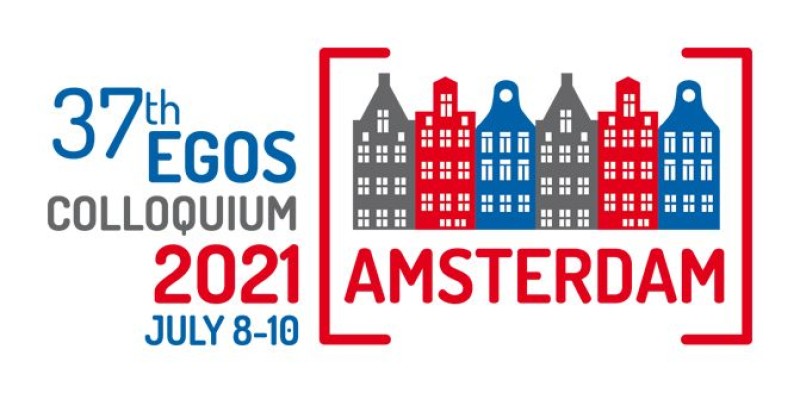A society is considered to be inclusive when all its members have access to relevant information and resources and, at the same time, demonstrate a willingness and capacity to develop rich and meaningful lives for themselves, and for others. In its pursuit of ideals such as equality and respect for diversity, inclusivity lies at the core of contemporary visions on modern democratic societies. Yet, we do not need reminding that inclusion is inextricably linked with exclusion and therefore may demand that we address difficult questions, trade-offs, and conundrums. Inclusivity depends on an ongoing effort to create and maintain organizations, institutions, and environments, as well as practices and languages, in which and through which these ideals find their expression, but which can also be contested. The ambition of a society that enables and fosters participation – one in which no one is left behind – may, paradoxically, never be fully accomplished.
Some recent developments threaten inclusivity around the globe. In various societies, for instance, identity politics, fuelled
by exclusive political allegiances and populist responses to migration and other issues, undermine inclusivity by stereotyping,
polarization, and a resulting loss of solidarity. The widespread erosion of trust in institutions, public and private alike,
further exacerbates the threat to inclusivity.
A lack of inclusivity in society particularly manifests itself in organizations across multiple, often interconnected dimensions
of diversity. This happens, for instance, through inequalities in wage levels and career prospects between categories such
as ‘core’ and ‘peripheral’ employees, men and women, full-time employees and ‘hired hands’, ‘white’ and ‘coloured’ people,
and through disrespect for personhood such as in various forms of harassment and bullying. Inclusivity is inherently an organizational
issue and calls to be examined through an organization studies lens; it questions the design of traditional forms of organizing
and organizational practices, and may demand the creation of novel, innovative ones.
The complex nature of today’s social challenges suggests that there may not be one best way to organize for inclusivity. For
example, in certain circumstances, inclusivity may become a convenient framing to avoid discussing burning or controversial
issues, such as equality or democracy. The value of inclusivity can be questioned if, in its very name, differences are pushed
to the background and suppressed as irrelevant, thereby confirming the dominance of the ‘normal’ in social, cultural, political
or economic terms. Despite many notable efforts, organizing for an inclusive society inevitably goes hand in hand with the
bright and dark sides of organizing.
In 2021, EGOS will be located in a city with an extensive history of organizing for inclusivity. Amsterdam, the city, and
its citizens have for a long time found creative and sometimes almost subversive ways of organizing their livelihoods and
interactions with different social groups in a limited space and under continuous external pressures. Shaking up old ways
of thinking and living together, as well as creating new forms of collaboration, communication, compromise, and exchange,
have always been central to this city’s organizing – in both its bright and dark
manifestations. Shaking up old ways of thinking and living together, as well as creating new forms of collaboration, communication,
compromise, and exchange, have always been central to this city’s organizing – in both its bright and dark manifestations.
The long history of migration to Amsterdam serves as an example of the entanglement of positive and negative sides of organizing.
The steady stream of migrants – whether from the nearby countryside or from far away locales – seeking work, inspiration,
and protection among like-minded people has led to excellence in many fields and domains ranging from economics to the fine
arts, but also to exploitation, dominance, and abuse of power. Therefore, in striving for inclusivity, people struggle with
its dark side. This struggle manifests itself in an ongoing search for answers to the question of what it means to be a citizen
of the city; a continuing debate about motivations to live and work here; and a ceaseless quest to discover and maintain organizational
mechanisms that foster inclusivity.
As the host of the 37th EGOS Colloquium in 2021, Vrije Universiteit Amsterdam (VU) shares the city’s history of finding unconventional ways to deal
with setbacks and adversity. Founded in 1880 as a privately financed counter-movement to the ruling of the clergy and the
government, it organized itself to stay independent and free (vrij) from external influence – free from the church, the state, and commercial interests. VU embodies the will to organize for
an inclusive society, yet does not hesitate to acknowledge the complexity of such organizing.
At present, VU is an open organization, strongly linked to people and society, and known for its distinctive approach to knowledge.
What matters is not merely the development of knowledge to ever-greater depths and levels of detail; its focus lies strongly
on the development of a knowledge base that is relevant – and in such a way inclusive – for a wide range of audiences. VU
asks and expects its members ‘to look further’ – beyond their own interests and discipline, beyond the familiar, and beyond
the here and now.
We invite EGOSians to our vibrant city of change, reflection, and invention – also to learn from the past in order to shape
the future.
For any questions re. the 37th EGOS Colloquium 2021, please contact
-
either the Amsterdam Organizing Committee: egos2021@vu.nl
-
and/or Angelika Zierer at the EGOS Executive Secretariat: angelika.zierer.secretariat@egos.org


